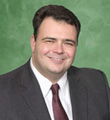Do you own a highly appreciated asset that produces little or no income? Are you selling your business? Are you highly compensated and looking to shelter more of your income? Put the charitable remainder trust in your list of options.
Charitable remainder trusts can increase your income, avoid capital gains taxes, lower or eliminate estate taxes, serve as another type of retirement plan, serve humanity and put a warm feeling in your heart. Here is an example that applies to anyone contemplating selling a highly appreciated asset.
In the Path of Progress
Clarence and Mildred had a farm that has been in the family since 1930. They raised corn and had a few cattle. However, the farm has been inactive since Clarence died 10 years ago.
The farm used to be out in the country. Over the years, the neighboring city has expanded to the point that its boundaries have almost reached the farm.
A real estate development firm with an offer she finds difficult to believe has recently contacted Mildred. They want to build a giant shopping mall on her property. Moreover, they are willing to pay 14 million dollars for her 80 acres.
As much as Mildred is tied to her home of 40 years and the lifestyle, this is an easy decision. The farm was originally homesteaded and has no basis. How can she minimize the capital gain tax?
The procedure would call for her to gift the farm to a charitable remainder trust. The trust would then sell the property to the real estate developer. She should employ an estate planning attorney to assure that the gift to the trust and the subsequent sale to the real estate developer are not construed as a pre-arranged series of transactions.
Using a charitable remainder trust gives Mildred the following benefits:
1. She does more than minimize the capital gain tax; she avoids it altogether. If the capital gain rate is 15%, this saves $2,100,000 in capital gains taxes. Mary is frugal. She has saved every button that has ever come off a shirt, blouse or shirt. She is also leery. She figures she can put that $2,100,000 to better use than the people in Washington D.C.
2. A charitable remainder trust mandates an annual payout of at least 5%. That’s $700,000 a year. She is set for life and can take all the grandchildren to Disneyland every year.
3. She will get a huge tax deduction based on her charitable contribution to the trust. It will be so big that the IRS will let her carry the unused portion forward for a total of six years. It's a good bet she will pay no income tax for the next six years.
4. She can name any number of charities to receive the 14 million in the trust when she dies. Ultimately, she could have a new church building, a wing on the hospital or scholarships named after her and Clarence for her generosity. The number of people who would benefit in the future is too many to count.
5. If she is concerned about disinheriting her heirs, she can use some of the income to buy a life insurance policy and name her children and grandchildren beneficiaries. She could also gift up to (currently) $12,000 per year to as many people as she wants without any gift tax implications.
6. No estate tax will be due at her death.
7. The 14 million will be professionally managed inside the charitable remainder trust. She has no investment worries and can set the trust up so she has a guaranteed income. Downturns in the economy, weather catastrophes or world events will have no effect on her income.
It's true that Mildred could simply sell the farm and pay the capital gains tax. Aside from the capital gains tax, coming into this large sum of money could create more problems.
She would have to invest it while fending off suggestions from well-meaning relatives. She would have some estate planning to do to avoid half of her estate going to the government in taxes when she dies.
When you put the charitable remainder trust on the table as an option, most of these problems vanish and many additional benefits appear.
Robert D. Cavanaugh, CLU is a 36-year financial and estate planning veteran and author of the free newsletter, "The Estate Preservation Advisor". For cutting-edge, easy-to-understand financial planning resources and techniques to increase your income, reduce taxes and preserve your estate and to claim the free video, "How to Sell Your Life Insurance Policy for More than the Cash Value", go to
http://theestatepreservationadvisor.com/rd/subscribe.htm 
